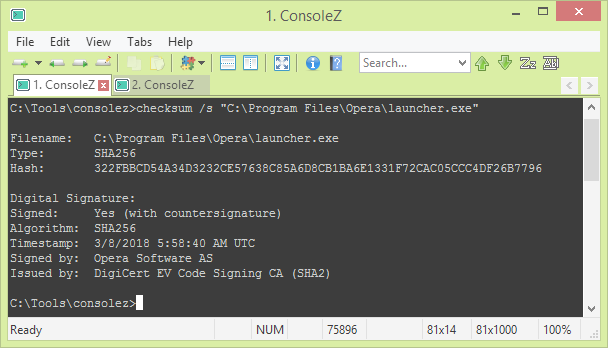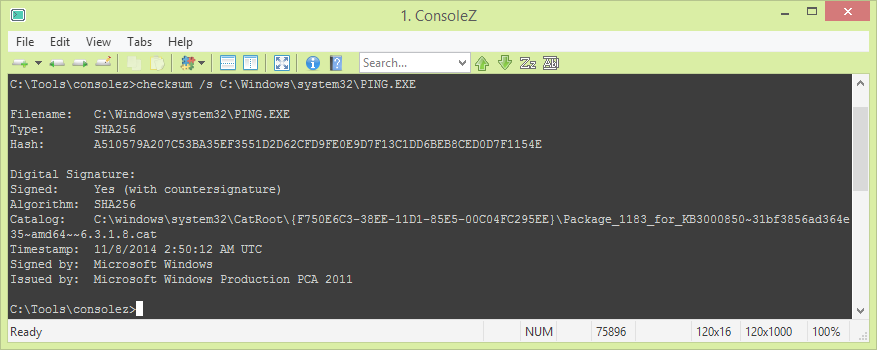Windows supports a code-signing feature called Authenticode, which allows a software publisher to digitally sign executable files (e.g. .exe, .msi, …) so that users can verify their autenticity. The digital signature of a file can be viewed in the file properties in Windows explorer on the “Digital Signature” tab.

Digital signature verification has been added to the checksum utility, which already calculates the checksum and entropy of a file. When using the new /s switch, checksum.exe will tell you whether:
- the file is digitally signed
- a counter signature exists
- the digital signature is valid
- the algorithm used (e.g. SHA 256)
- who signed the file
- who issued the certificate
- when the file was signed
The utility also sets the ERRORLEVEL variable accordingly; if a signature check is requested with the /s switch but the file is unsigned, then checksum.exe will return %ERRORLEVEL% 2. Below is a sample output of the utility in action:

Digital signature verification will be added to EventSentry’s FIM monitoring component (“File Checksum Monitoring”) in the upcoming v3.4.3 release, which will give you the option to only get notified when unsigned files are changed, thus reducing overall noise.
You can download the latest version from here – enjoy!